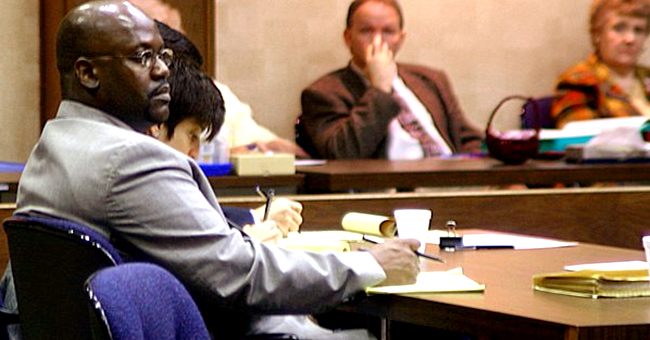
Supreme Court Tosses Murder Conviction of Black MS Death Row Inmate over Racial Bias
After six trials and 22 years on death row, a Black man may look forward to a future outside of prison. The Supreme Court threw out his conviction due to a prosecutor's efforts to skew juror selection.
A Black man on death row will live to see many more days as the Supreme Court recently overruled his sentence due to racial bias.
Death row inmate Curtis Flowers has been serving more than two decades in prison for multiple murders that occurred in 1996. Flowers was charged for the death of four people who were discovered dead from gunshots in a furniture store in Winona, Mississippi.
22 years into his prison time and six trials later, Flowers learns his future may be brighter than he expected. The Supreme Court threw out his conviction and death sentence due to evidence of racial bias at play during his most recent trial.
A review of Flowers’ trials spanning 20 years revealed District Attorney Doug Evans consciously struck off Black individuals from the list of prospective jurors.
THE CIRCUMSTANCES THAT LED TO FLOWERS' CONVICTION BEING TOSSED OUT
On Friday, seven out of nine voted for the overturning of Flowers’ conviction after learning a prosecutor on his case barred African Americans from participating as members of the jury. A review of Flowers’ trials spanning 20 years revealed District Attorney Doug Evans consciously struck off Black individuals from the list of prospective jurors.
According to the document announcing the decision to throw out Flowers’ conviction and written by Justice Brett Kavanaugh, Evans was “relentless” and “determined” in his “effort to rid the jury of black individuals.”
"The numbers speak loudly," Kavanaugh said. "We cannot ignore that history."
THERE WAS A PATTERN OF RACIAL BIAS
In fact, Flowers’ sixth trial was composed of 11 jurors who were White and only one African American. Evans’ pattern of excluding Black jurors goes way back to Flowers’ earlier trials. In fact, Kavanaugh noted in his summary that the prosecutor removed 41 of 42 prospective Black jurors over the course of Flowers’ six trials.
"The numbers speak loudly," Kavanaugh said. "We cannot ignore that history."
Flowers was described by prosecutors as a disgruntled former employee of the furniture store when he was arrested seven months later and accused of the quadruple murders, citing revenge as his motive.
ON THE POSSIBILITY OF A SEVENTH TRIAL
Despite this new development, Flowers may still face a seventh trial if prosecutors wish to pursue it. However, his defense lawyer at the Supreme Court, Sheri Lynn Johnson believes a seventh trial would be “unprecedented and completely unwarranted.”
According to Johnson in an e-mailed statement, Flowers deserves to be set free because of the “flimsiness of the evidence against him and the long trail of misconduct that has kept him wrongfully incarcerated all these years.”
...an informant from jail who previously told the jury that Flowers admitted his guilt to him recanted his story.
WHY FLOWERS WAS CONVICTED
Flowers was described by prosecutors as a disgruntled former employee of the furniture store when he was arrested seven months later and accused of the quadruple murders, citing revenge as his motive. He was fired by the store’s owner and withheld most of his pay to cover for merchandise he damaged.
In Flowers’ defense, his lawyers claim evidence against him was weak. In fact, an informant from jail who previously told the jury that Flowers admitted his guilt to him recanted his story.
A TRAIL OF WRONGFUL CONVICTIONS
Should Flowers find himself free after this latest trial, he’ll be joining several other inmates who were granted their freedom after proving they were wrongfully convicted.
Charles Ray Finch was on death row and had served four decades in a North Carolina prison when he was released due to evidence that cast doubts on his guilt.
Meanwhile, Richard Phillips who served 45 years didn’t only gain back his freedom but was awarded $1.5 million in compensation for his wrongful conviction.
Flowers should hope that he gets the same chance these two men had because it’s never too late to make a fresh start even after a life behind bars.
